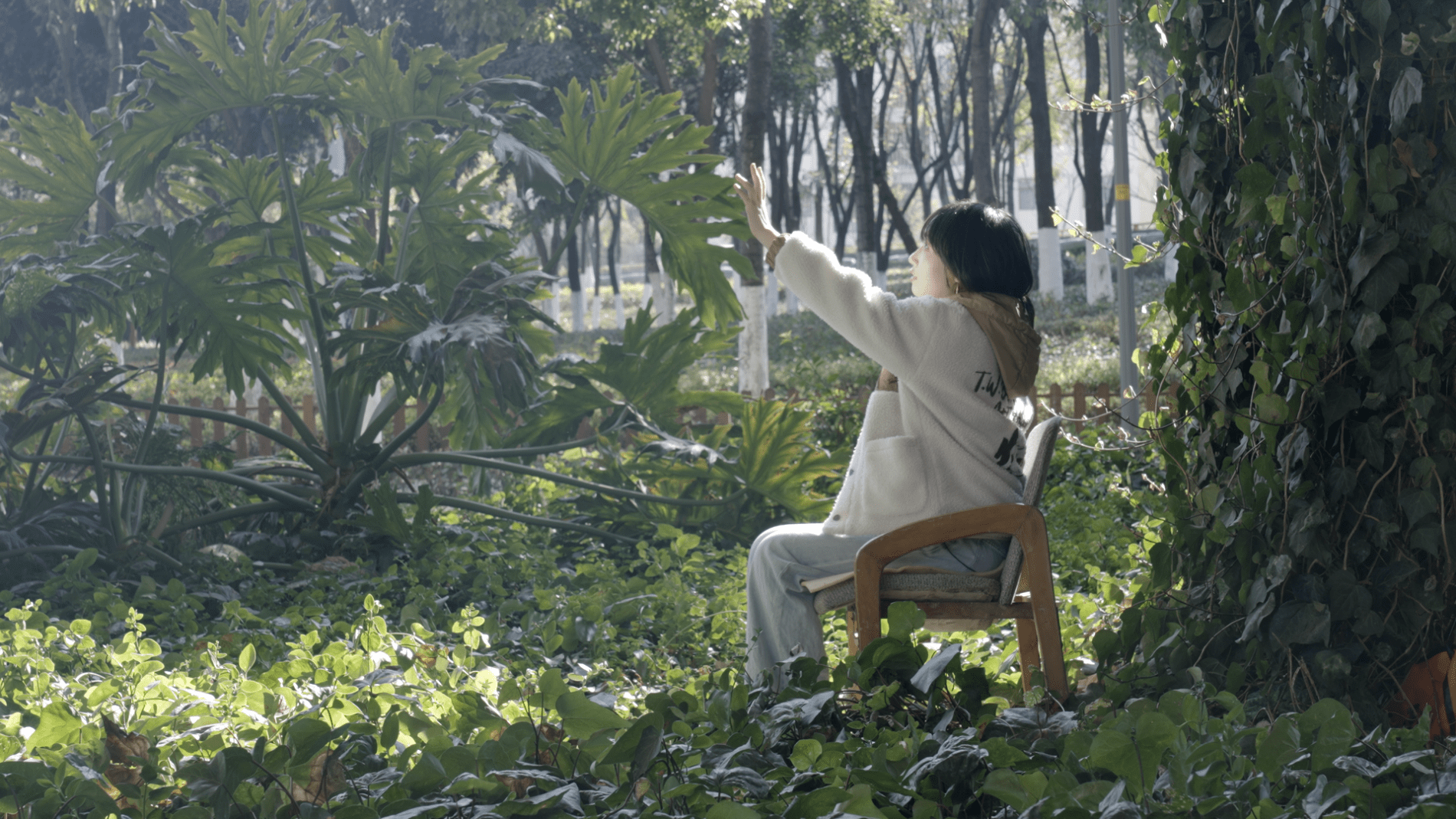Director │ Kim WEBBY
Producer │ Alex LEE
In this hybrid docu-drama, fictional 26-year-old An JOE, makes a documentary about her ancestor, the real-life JOE Kum Yung.
JOE was 68 and crippled, a luckless Chinese goldminer, shot dead by a white supremacist, in Wellington, New Zealand in 1905.
Eurasian and adopted, An has just found her Chinese birth mother and is learning about being Chinese. When she makes a documentary about JOE’s murder, An grapples with her own half white, half Chinese identity as she confronts the present and past white supremacy that killed JOE. And the systemic anti -Asian sentiment in New Zealand at the time, reinforced by laws and policies.
As An investigates JOE’s life and death, the edges blur between past and present, until finally An and JOE meet face to face in the Chinese gold mining settlement where he lived and worked for 33 years, in New Zealand’s South Island.

Director │ Jian FAN
Producer │ Vincent DU
YU Xiu-hua is one of the most famous contemporary female poets in China. In 2015, her bold poem about desire, Travelling Halfway Across China to Sleep with You, became popular nationwide. Since then, several of her works have been bestsellers, with sales reaching 1.5 million copies, and she has millions of fans on Chinese social media. At the same time, she is also disabled, suffering from cerebral palsy. After becoming famous, she divorced her husband, whom her parents had arranged for her, and was not happy in the marriage. In 2022, at age 46, YU Xiu- hua finally experienced love for the first time with a fan who was 14 years younger than her. She threw herself into the relationship but unexpectedly suffered from domestic violence, which sparked intense discussion in China.

Director │ XIAO Yu-ru
Producer │ WONG Kei Yiu Kathy
In an old community in Neihu District in Taipei, there is an underground dwelling in an apartment building where twelve elderly people live alone.
Devout Mrs. ZHANG has started learning to write in order to read the Bible better. The Sergeant, who struggles with alcoholism, still insists on working at the park six days a week. Ms. LAI, with a youthful spirit, serves as the energetic errand-runner and food delivery person for the basement residents.Despite battling cancer, Captain KE still seeks joy in the karaoke lounge, singing loudly. Mr. PENG enthusiastically studies lottery numbers every morning.
During the earlier stages of their lives, they went through many ups and downs. Therefore, calm and autonomous life in their elderly years became their aspiration. Despite grappling with illness, poverty, and solitude, they continue to make an effort to age gracefully in this bustling metropolis in their own way.

Director, Producer │ WANG Jiu-liang
Seasonal fishing bans in China’s coastal waters allow immature fish and shrimps to grow temporarily. However, the relentless fishing season reopens before they reach maturity, and larger and larger fishing vessels with smaller and smaller nets are used to exploit fish populations as much as possible. The already extremely unbalanced ecosystem in China’s coastal waters is once again on the brink of collapse. The deep sea also once again becomes as deadly quiet as the dry desert.

Director, Producer │ WONG Ka-ki, HO Yuk-fai
Dad: Perhaps by the time you’re no longer a Hong-Konger, you lost your Hong Kong identity.
Hoi-nam: I still have it, I don’t have a UK ID.
Dad: By that time, you’ll have your UK ID.
Hoi-nam: So do I have to throw my Hong Kong ID away?
Dad: Maybe...
In 2021, Hoi-nam, a 6-year-old girl, and her 3-year-old brother Ah-yat moved to England with her parents to start a new life.
Facing questions about their identity and hometown, navigating the subtle changes in their sibling relationship, and dealing with the complex mix of love and conflict with their parents – this film will explore life topics such as identity, family, love, education, and career, thus taking us on an unpredictable journey of growth.

Director │ JIANG Xuan-nian
Producer │ JI Hang
The lesbian couple, both Hang and Nian plans to become mothers next year, this plan drives from Hang’s promise to her parents: she must give her parents a grandchild before she turning into 35. However homosexual marriage is not admitted in China, unmarried women are not allowed to purchase sperm or receive assisted reproductive technology in public hospitals. The couple decided to travel to Cambodia for IVF, and “customizing” a baby.
This is a story about love, responsibility and identity, and tells in the first-person. “I” as main character, “I” as Hang, also “I” as Nian. Writing all the compromises and difficulties that LGBTQ+ groups have to face for establish a family through self-gazing.

Director │ HAN Meng
Producer │ Vincent DU
Shiju village is located in the northwest of China, one of the poorest areas in China, backed by mountains, far from the sea, and 1400 kilometers away from Beijing. China’s most successful entrepreneur, PAN Shiyi, was born in a poor family here. He is the boss of SOHO China, once China’s largest real estate company, with assets of 1.3 billion USD and top-grade office buildings in prime locations in Beijing and Shanghai. Many internationally renowned designers, such as Zaha Hadid, have designed his real estate projects, winning numerous international awards. In early 2019, PAN Shiyi built the “Virtue” kindergarten in Shiju village and planted 40,000 rose bushes. PAN Shiyi hopes to promote children’s education on virtues such as “love,” “honesty,” and “peace” from an early age.
Can this education on virtues be successful?
This film records the innocent understanding of the children in the kindergarten about truth, goodness, and beauty, as well as the real-life difficulties faced by women who are seeking love, faith, and money.
The 40,000 rose bushes in Shiju village, northwest China, experience the four seasons, blooming and falling, and they have a more complex meaning in the hearts of PAN Shiyi and the villagers, as well as in this documentary film. The women and children in the village are also rebuilding themselves and exploring the true meaning of “virtue” in the flow of time, from spring to winter, from blooming to falling.

Director │ CHEN Dong-nan
Producer │ Kay XU, ZHAO Jia
Whispers in May takes us on a poignant journey alongside 14-year-old Qinghua, whose first menstruation sets in motion a quest for self-discovery. In Yi ethnic traditions of Liangshan, this milestone demands a new skirt for the girl’s menarche ceremony, which signifies not only her transition into adulthood but also the looming possibility of an arranged marriage soon to come. However, with her parents working in far away cities and the recent loss of her beloved grandfather, Qinghua finds herself “homeless” and conceals her menstruation as a secret, relying on her two besties for support in finding the skirt.
As a hybrid documentary, the film embraces spontaneity as the filmmaker and subjects embark on an improvisational road trip, merging reality and imagination to explore the complexities of adolescence, cultural traditions, and the indomitable spirit of friendship as Qinghua bids farewell to her girlhood.

Director │ SU Yi-hui
Producer │ WANG I-chan
Darasong, a Rukai’s tribeperson, tirelessly gathers stones to construct a traditional slate house. However, the construction of a slate house is not considered within the regulations of modern society. Elders praise it, peers revere it from afar. And the authorities demand compliance whilst the tourists ask if they could have a stone to keep for themselves.
The slate house is yet to be completed before Darasong’s father passes away. He aspires to surpass his father and finish building the slate house so that he could become the man of the tribe. Before he began the construction, he dreamed the house was slanted. Will Darasong complete the slate house? After it is completed, will it remain solely his? What does their desired house look like?

Director │ Chris WU
Producer │ Beverly HSU
“Special Companionship in Long-Term Care”
WU Hsin-fei once said, “I don’t think I was taking care of my mother; in contrast, it is my mother who kept me company and fulfilled my wishes to take care of someone.”
Apart from the general perspectives of Long-Term Care, the story of companionship and caregiving purely focuses on the genuine interaction between mother and daughter, and the portrayal of the characteristics which transcends the human family bond, as we can see by the character of care-giver, WU Hsin-fei. The documentary took almost 6 years for filming.

Director, Producer │ YANG Fan
Over the past few decades, China’s economy has experienced rapid development, leading to significant changes in its social structure. The eight children of Chunyu (the director’s grandmother) have also been swept into different social classes by this wave, acquiring distinct social identities.
Due to Chunyu’s illness, they are forced to return to the impoverished mountain village where they were born. During the lengthy process of waiting for Chunyu’s passing, they not only experience the fracture of social classes within the family but also find themselves tightly bound together by blood ties.
From the director’s personal perspective, this film documents the complex emotional journeys of the family members and the history of a village on the path to extinction.

Director │ LIANG Chou-wa
Producer │ Andy HUANG
Replica is a feature-length documentary following the love stories of four young Chinese women from different backgrounds and ages who are in love with AI Chatbots. These chatbots can provide 24/7 companionship, write touching poetry in a second, and will never say goodbye to them...

Director │ HSU Ming-chun
Producer │ Diana Chiawen LEE
At the end of World War II, instead of repatriation, Taiwanese soldiers who fought for Japan were sent to Siberian POW camps by the Soviets. Memories Frozen in Time aims to uncover the experiences of these Taiwanese Japanese soldiers in the POW camps and their lives upon returning to post-war Japan and Taiwan.
At 96, Masao Go, the sole surviving Taiwanese Soviet POW camp survivor, struggles to memorialize his legacy as he grapples with his identity.
With faded pictures, handwritten diaries, muffled tape recordings, and scattered records, Eiko longs to piece together her late father’s life, HSU Ming-hsin, who was thrust into a war that forever changed his life and future generations.
Curious as to why CHEN Yi-wen watched sumo matches, listened to Okinawa radio programs, and sang Japanese military songs led Lihang to discover his grandfather’s painful past.
Their stories intertwine, weaving a tapestry of shared but forgotten memories.

Director, Producer │ Claire SHIH
Director, Cinematographer │ Ray CHAN
Here, you can see a group of pigeons carrying wooden whistles and moving forward with a burden, flying over one yellow dry field after another. We thought that all pigeons wanted to return home, but some pigeons from the beginning flew in the opposite direction and disappeared without a trace. An elderly farmer hoped that his friends and relatives would return home safely and orderly, just like the pigeons he raised. Unfortunately, his wishes were not fulfilled. He saw solar panels growing on long- abandoned fields one day, friends’ homes turning into foreclosed properties, and the village withering away like drought-stricken crops. The elderly farmer, who had played with the Pigeon Whistles all his life, wished to continue his unchanged lifestyle. However, his family had different ideas, leading to a clash of generations. Faced with this conflict, what should the old farmer do?

Director │ JU An-qi
Village is the third part in the China Architectural Heritage Trilogy series and the world’s first documentary on the revitalization of China’s rural architectural heritage.
This documentary will cover 25 provinces across China and visit nearly a hundred historical and cultural towns. Through artistic imagery, it will record this architectural heritage in its past and present states. Interviews will be conducted with dozens of architects, experts, scholars and practitioners of architectural revitalization. The objective is to present the changes in rural heritage and explore ways to protect and utilize architectural heritage in the process of urban-rural renewal and sustainable development in China. From a documentary, social and academic perspective, it will fill the visual gaps in the history of Chinese architecture and cultural heritage.
The proposed documentary Village focuses on several highly representative rural areas, delving into topics such as the balance between nature conservation and economic development, rural life and cultural enhancement, and architectural aesthetics and contemporary applications. The goal is to visually narrate several moving stories concerning rural architecture and individuals through images that are both humanistic and thought-provoking.

Director, Producer │ GUO Si-yuan
The main storyline of this film follows two protagonists who have experienced dramatic changes in their lives along with the city. One is a young girl who looks back at her hometown, and the other is an old revolutionary who has been continuously documenting the historical changes in Tangshan. They represent the “past” and the “future” respectively. There are also ordinary people in Tangshan who have experienced the earthquake in various industries. The film explores the impact of the earthquake on their lives.Trauma is a common human experience. Everyone has moments when they need spiritual reconstruction, and everyone can draw strength from the stories of the resilient and optimistic people of Tangshan.
This is a documentary about urban memory and the rebirth of a city after a disaster. It takes the perspective of a young girl to look back at her hometown and contemplate homesickness. It reflects on disasters, life, and death. It explores how to face and remember history and continue to live well after a major turning point in the era.

Director │ YAN Hao-hao
Producer │ Guo Guo
Following our 18 aunties, in their seventies, through their daily practice, we dive into the pain and growth and their unique personalities driven by the need of being seen on a bigger stage. Our film will peek into each individuals’ personal and social lives as an immigrant, as a senior member of the society, as a woman, and as a dancer with passion. As objective spectators, we will dive deeply into why this group of dancers NEED to dance, HAVE to dance and the price of dancing, sometimes even, at the expense of their own health and mental stress. Our story will further investigate how an Asian female immigrant living status was affected by the society and shaped by their personal experiences, and what the American Dream means to them. By following their journey toward competing on the biggest American mainstream stage – America’s Got Talent, we want to discuss the modern mantality of face aging problems, why it is important for this specific group of immigrants to be seen and what it means to themselves if they succeed.

Director │ WANG An-min
Producer │ CHOU Chieh-hsuan
ZHAO Guo-gong, known as A-Gong, is a legendary figure in Taiwan’s mountaineering community. Speaking Taiwanese mandarin, he captivates with his strong presence. This film not only showcases the daily work of Taiwan’s high-altitude collaborators but also delves into how A-Gong has dedicated a significant portion of his life to the mountains. Behind his seemingly carefree exterior lies a deeper exploration of his personal journey and how he confronts the challenges of life. Despite his advancing age and the storms he has weathered, why does he find himself drawn back to the mountains? While mountains serve as a place of healing and fitness for most climbers, are they A-Gong’s sanctuary in life or a choice born out of necessity?

Get daily insight and update containing tips, skills for your creativity
Zero Spam. You Can Unsubscribe Anytime
